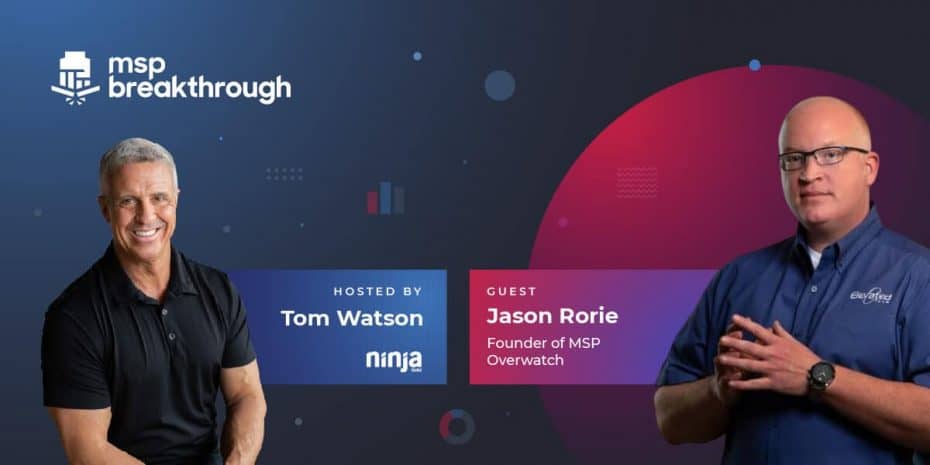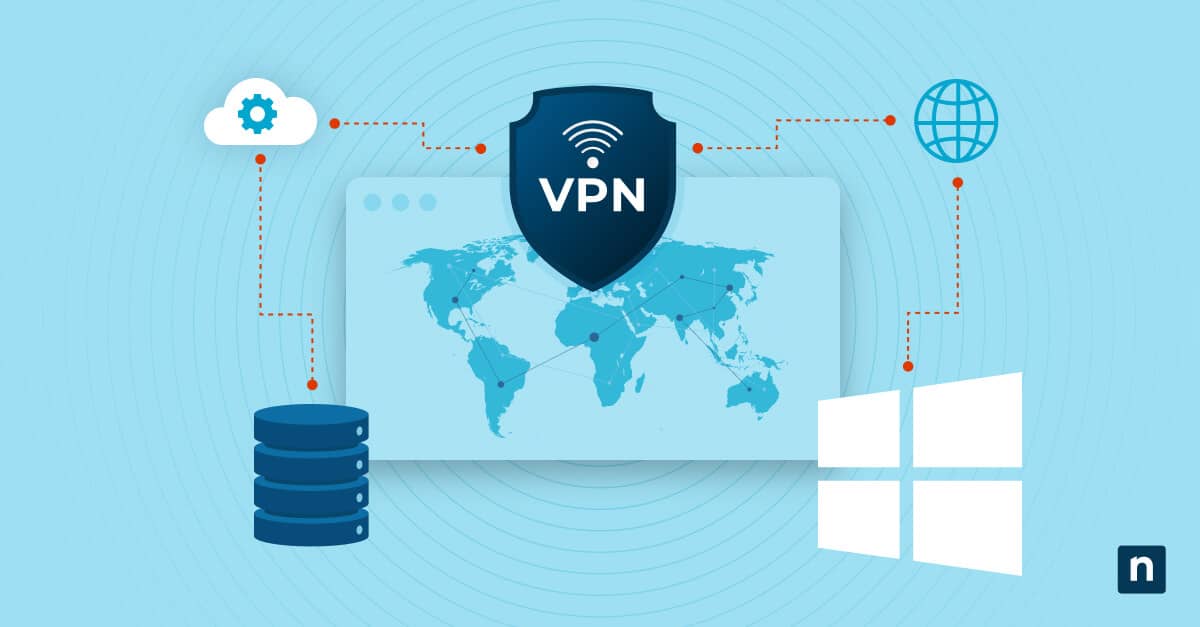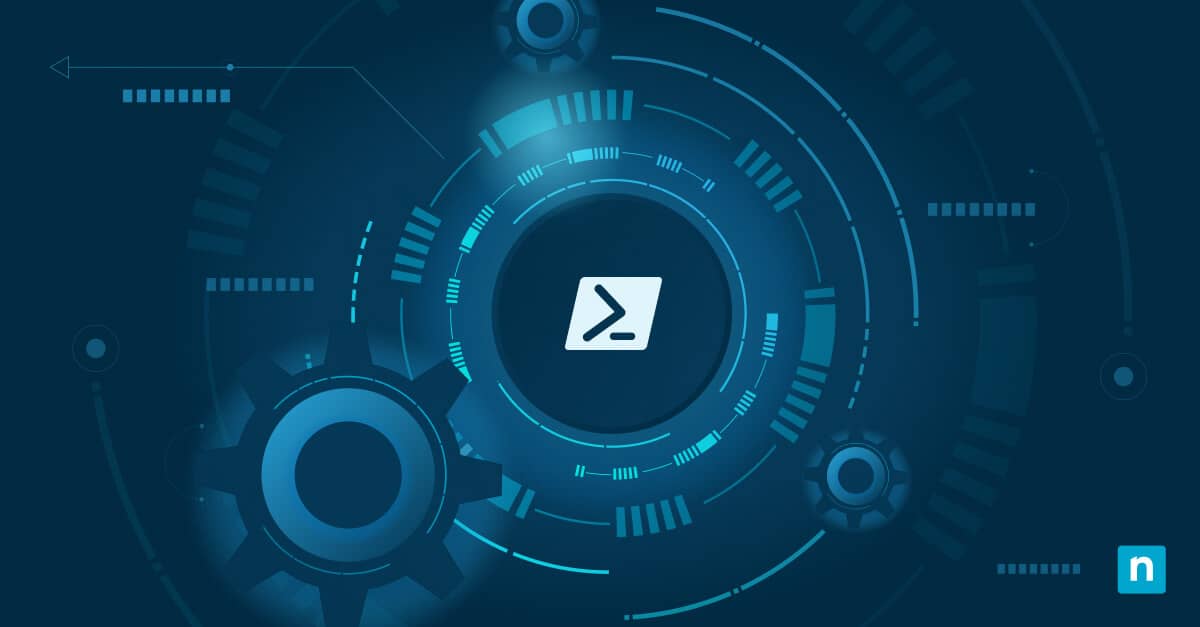MSP Owner and Chief Security Officer at Elevated Technologies, Jason Rorie, shares key breakthrough points on his MSP business journey and covers the importance of developing strong business processes and systems to position your IT business for future growth.
Jason Rorie’s entrepreneurial journey took him from a small town, to the US Navy and into the role of big-city IT business owner. Outside of daily business, Jason also enjoys writing about his industry and passion, technology and information security.
After leaving the Navy, he carried the same fire and passion into civilian life: he set new, ambitious goals and then set out to achieve them.
Jason moved to Houston in 2006 and started Elevated Technologies. Through hard work, perseverance, and commitment to its employees and clients, Elevated Technologies rose to become an established, trusted provider of technology services to a vast array of clients in the Houston area. Growing strategically and confidently, Elevated Technologies was recognized on Houston’s Business Journal’s Fast Tech 25 list and also the Fast 100, which is the list of the fastest-growing companies in Houston in any industry.
Jason is passionate about cybersecurity and helping small and medium-sized business owners protect their businesses, clients, and reputations.
In this episode of MSP Breakthrough, Rorie chats with NinjaOne’s Channel Chief Advisor Tom Watson about some key breakthrough points in his MSP business journey, tips for developing his business model to face modern security challenges, and offers valuable advice on hiring tech talent at the right time.
Listen
Like the show? Please consider supporting it with a review. It will help a lot!
You can review/subscribe at either of the following:
Watch
Read (transcript)
Announcer: This is “MSP Breakthrough,” where successful MSP owners walk us through the pivotal moments that put them over the top.
Tom: Welcome, Jason Rorie. This is NinjaOne’s “MSP Breakthrough” podcast. And to tell you what we’re doing here, we are interviewing current and former MSP owners. What we want to do is we want to get a take on breakthrough moments at your MSP. So these would be things that you did along the way that really resulted in a breakthrough.
It might be financial, it might be hiring people, it might be moving to managed service agreements, moving away from break-fix. It could be anything but things that you’ve identified you look back and you go, you know what? That was a smart decision I made. That was something that allowed me to get to the next level, and here’s where it’s brought me today.
But before we get into that, I’d like it if you could maybe introduce yourself and maybe give us a couple of minutes about how we ended up here today. How you got on my radar, why it’s important to talk to you, and maybe, you know, what you’re gonna share with us.
Jason’s entrepreneurial story
Jason: Yeah. So my name’s, Jason Rorie, founder, chief security officer of Elevated Technologies. We’re an MSP based out of Houston, Texas. We’ve been in business for going on 15 years now. Just worked with a lot of other MSPs in the channel when it comes to security and consulting. I think that’s, kind of, what brought us together was some of the mutual colleagues that we have and some of the stuff that we’re doing in the channel together. So yeah, I’m happy to be here and share whatever I can.
Tom: Great. So Jason, every MSP owner I’ve talked to, and they’ve all got stories. This is a wild industry to work in.
Jason: It is.
Tom: I tell everyone, I’m like, there’s not a lot of the businesses where you handle as many variables. There’s a lot of things to juggle and there’s a path and all of us have often a common story on that path, but there’s differences. And one of the things we like to do at ninja is we like to educate our prospects and our partners on what it takes to become an MSP, and that’s, kind of, how we came up with the MSP breakthrough series.
What we’re trying to do is capture from experienced MSP owners like yourself what are the decisions you made along the way? What is, looking back, something you did that was really pivotal and drove your business to the next level? So I’m gonna ask you first, what is the first breakthrough moment that comes to mind for you?
Business coach breakthrough
Jason: I think the first one that comes to mind, and this goes back probably six, seven years, is when I kind of felt from a business perspective that we were, kind of, plateauing and really needed to, kind of, break through a certain ceiling and ended up hiring a business coach. I think that was my first real breakthrough is having, you know, a business executive coach to help me redefined and build new processes and just really systemize the business as a whole when it comes to the operations. And that was a major breakthrough for us.
“We were able to build a lot of efficiencies in our business, based on the new processes that we developed and that really helped us continue to grow, break through that ceiling.”
And, you know, since then really ultimately doubled the size of the business.
Tom: Well, that’s a great one. And actually, you’re the first person I’ve interviewed that brought up hiring a business coach. Can you tell me how did you find this person and did they have familiarity with MSPs in particular?
Jason: You know what’s funny, I just went to Google. That’s how I found one. I just did some research of some local business coaches in this area, you know, because I wanted someone I could sit down with face to face and really, you know, kind of build a relationship with.
And the guy that I hired in and I’m still working with him today, we still have an ongoing relationship. Did he specialize in MSPs? No. He just specialized in general business, but he’s been a lifesaver and I definitely contribute a lot of our growth to him and some of the things he’s been able to help me accomplish.
Tom: Can you give me an idea of a process that he saw that maybe it was allowing your business to stagnate and where he inserted himself, and what happened?
The power of process
Jason: I mean, it was really just sitting down and drawing up processes. I think within the first year of working with him, you know, I kind of went to work to really build a standard operating procedure manual for the business. Everything from how the receptionist answers the phone to how we deliver the solutions that we deliver, how we document, how we onboard, you know, all these things that actually put a binder together to be able to say this is exactly how Elevated Technologies runs.
And it was a lifesaver and of course, you obviously share that information with your staff based on, you know, what their roles are so they understand exactly how they do their job. And, you know, so if it’s successfully documented and it’s repeatable, then they’ll have success in their position.
“It’s really helped us run lean and more profitable because everybody knows exactly what they need to do to be successful. They just follow those steps and by that, it allows us to run with less personnel than maybe some other MSPs.”
Tom: Yeah. Jason, you know what that reminds me of? Years ago, I had a lot of friends who were involved with various franchises. And I almost bought into franchises, but then I decided instead to pour that energy into my MSP. But I learned something when I looking at franchises is that they had this guide in a franchise and it was a procedures doc that covered everything.
I mean, how you talk to people, how you clean everything, how you prepare everything. And it’s what makes franchises able to work and able to replicate that over and over again because as you probably know, like, franchise owners don’t make money unless they own multiple franchises because the margins are slim because they’re giving some up.
But they do make a lot of money because they can repeat that process with different people and punch new people in all the time. They’re not dependent on, like, I spent some time trying to hire these perfect people. And then I figured out it was better spent trying to develop the perfect process and then find the people to run the process. And it reminds me of that.
Jason: Yeah, no, absolutely. That’s what he, my business coach, told me. He was like, “Businesses run on systems, not people.”
Tom: Absolutely.
Learn from the franchises
Jason: So develop the right systems and the right processes. I mean, it shortens the onboarding time for new employees because you know exactly what they need to do and you have the documentation to give them.
“That’s why the franchises are successful — it’s all about consistency. So, if you can build that into an MSP, essentially all you’re doing is driving your profit margins up by being more consistent and more efficient.”
Tom: Yeah. As a matter of fact, I have a consulting client right now I’m working with, and one of the things we’ve talked about, we spent some time trying to find this just perfect person at a very high-level management role like director of operations. And we realized we’re not gonna find that person. If that person existed, they would be having their own MSP.
Jason: Yeah, exactly.
Tom: You know what I’m saying? And instead, we’ve gone back and I said, you know what we should do? We should document each procedure. We should document, like you said, how you answer the phone, what you say, everything about hours, when it kicks over to the answering service, you know, how after-hours calls are handled, all these things. We should document all this and we should get a really strong office manager.
And we should not be dependent because hiring these and MSPs are at a real disadvantage too trying to hire these very high-level people and insert them because those kinds of people, like I said, go and start businesses. They have a lot of mobility. They can get other jobs. You want to have your business not dependent on individuals, but dependent on process. Is that, kind of, where you’re going with this?
Jason: Yeah, absolutely.
Tom: Yeah. That’s great. I know it’s a big thing to hire people. Along the way, as a result of working with this business coach, did you make strategic hires as well?
“Hire Slow, Fire Fast”
Jason: We kind of focused on, you know, hire slow, fire fast, you know, because it is difficult in the MSP space, especially when it comes to the technical side, to find good people that can actually do the work required within an MSP. A lot of people come from the corporate world and they’re just, kind of, stuck on doing that one task, that one job day in day out.
“With MSP, it’s completely different. You’re constantly changing gears physically, mentally. You’re going from one client to another. Every client’s different. Different people, different software, different needs.”
So finding someone that can really fill those shoes, it has been difficult, but we’ve done a pretty good job in just getting people in that they’re okay with the variety. They like that kind of work, and then it’s just a matter of training them up and moving them from help desk to a field technician and then backfilling the help desk, and that’s really kind of how we do things.
Tom: That’s great. So how many years have you been in business now?
Jason: So we crossed our 14-year mark this year in July, so about 14-and-a-half years now.
Tom: Now, I think there’s another breakthrough here we really need to talk about. When you introduced yourself, you said you call yourself a CSO so you’re a little different than your typical run-of-the-mill managed service provider. There is a real emphasis on security, and I think that’s really important. I had one of these calls last week, and one of the things we talked about was I exited the MSP world as an owner five years ago.
And back then, you really had to sell security because it was not completely on the radar of companies. It was not required by insurance companies. Now it’s something where it’s an easier sell in many ways, but it’s also a lot more to overcome because there’s a lot more security concerns. Can you tell me about the breakthrough that took you from maybe your standard MSP and MSP play to go into more a security angle where you’re also an MSSP?
Don’t just talk about security
Jason: Yeah. I mean, just over the last few years, obviously, security is becoming more of a hot topic. We’re seeing a lot more incidents that are being, you know, publicized so it is more on business’ radar. I mean, some of the SMBs that MSPs deal with still are not quite in the right mindset, thinking that they’re still too small for anything to happen, so there’s a lot of education there.
I really saw an opportunity, but the biggest breakthrough for me was I didn’t want to be the MSP that was out there trying to sell security but really didn’t have the credentials or the experience or any of that to back it up. I wanted to make sure that, you know, if I’m out there selling a security solution and protecting this business’ livelihood that I can actually walk the walk and not just be out there talking about security because that’s the hot button that selling everything.
“So I went back to school, I got my master’s in cybersecurity. I really wanted…to learn more about true infoSec program building, compliance, writing policies. Well beyond just throwing out a firewall and some AV and saying that the business is secure.”
I really wanted to be able to take our clients from end to end. And I mean, even now recently, actually after we record this podcast, I got to jump on a call where I’m actually taking a company through the ISO 27001 certification. So, you know, I’m helping them build a full program for their cybersecurity to meet international standards. So it’s really fun for us.
Tom: I think that’s a really great point. I think that a lot of MSPs out there go ahead and hang their shingle out there as being security experts or MSSPs, but they haven’t done their homework, or like you did, I think it’s very important, you went and got more education for it. You need to make sure you’re covered. Insurance companies, of course, are going to look at that kind of thing. This is very important. Can you maybe give some suggestions that if you own an MSP out there and you want to take security to the next level, what are the steps that are really necessary?
Jason: I would say just having a full and deep understanding of what it truly takes to secure a network, you know, and a business. Like you mentioned from an insurance perspective, you know, they’re going to want to see a lot of documentation. So if you’re not out there helping clients write policies, make sure they have the right insurance, you have the right reports to show these insurance companies or auditors depending on, you know, what industry your clients are working in, then you’re leaving yourself kind of vulnerable, and that’s what’s scary about, you know, some MSPs out there, that they are promoting themselves as cybersecurity experts, but not having the true knowledge to fully implement a security program and it’s coming back to bite them in the long run.
I’ve even seen a couple of lawsuits out there filed against MSPs that actually used their cybersecurity marketing language against them in the lawsuit saying, “Well, you said you’re a one-stop-shop, 24/7 protection, and we still had an incident that cost us money.”
So they ended up, again, sueing the MSP. So it’s just a matter of really understanding what you’re getting yourself into and being very careful how you market yourself if you can’t back it up. And if you can’t yourself, if you’re a smaller MSP, then, you know, look to outsource. Find a really good MSSP or a few of them, you know, to outsource to, to make sure that you have the skillset behind you that you need.
Tom: Absolutely. Is that part of your model too? Do you work with other MSPs?
Jason: Yeah, I do.
MSP Overwatch
Tom: How does that work?
Jason: We built a platform called MSP Overwatch that was a play off some of the NIST control frameworks where we help MSPs really tighten up their own networks. Just really preparing for, you know, if our industry ever got regulated, which I think it will at some point, and then it kind of helps them understand what a full program looks like. Writing policies, you know, having administrative controls in conjunction with the technical controls that we’re all familiar with, and even some physical controls depending on how the MSP model for them is built out. And then they can roll that over to their clients and, you know, help their clients build programs and work with compliance if they are regulated, you know, through medical or financial just depending on what the MSP’s clientele looks like.
And I also help consult, almost being kind of a virtual CISO for other MSPs so they can go out and look for compliance work and compliance projects. I’ve helped with everything from HIPAA to GLBA, to DFARS/CMMC. And then, of course, you know, now within my own MSP, I’m doing the ISO 27001. So, you know, it’s worked out pretty well. I’ve got a lot of really good relationships with other MSPs around the country, so it’s been fun.
Tom: That’s great to hear. I think there’s probably a level of mentorship going on there too, and that’s important. I mean, we can’t expect all of these MSPs to be able to develop the skills, get all the education you did for it, but what’s important to know is that there’s other MSPs and MSSPs out there that will work with MSPs and help them take security to the next level.
Jason: Yeah, absolutely.
Tom: So at every MSP, you already mentioned, kind of, there’s a stagnation point, and often there’s a stagnation point because of how services are being delivered and charged for. Most of us start out doing a lot of break-fix work, and then we move into more of a managed service agreement. Can you maybe talk to us about that and what kind of breakthrough has occurred for you?
Break/Fix 2006
Jason: Yeah, I mean, when I started the company back in 2006, it was on a pure break-fix model because that’s the really only model I knew and really one of the only ones that really existed back then. But around 2010 for me is when I kind of heard about managed services and then started researching the recurring revenue model and what it would take to build MSP packages so you could charge, you know, the monthly fee and not trade time for money, which is bad. And that was really after, kind of, understanding that and making sure the model made sense, I just kind of went to work, talking to the clients that I had at the time, you know, building packages, pricing.
You know, a lot of the vendors I had back then definitely helped a lot from a business development side, you know, with how to package, how to price at the time. So yeah, I just had those conversations with clients. I lost some, but we’re able to roll some over from break-fix to managed services, and then going forward, you know, that’s all I offered.
“So it probably took a year, maybe a year-and-a-half, but maybe by 2011, 2012, I was pure-play MSP. I wasn’t doing any break-fix work anymore and haven’t since.”
Tom: Wow. Do you go with a single model or do you have multiple packages you offer?
Jason: I go with a single model. The only really difference I’ve done recently is, kind of, went to just a one per-seat price model versus, kind of, breaking out, you know, per workstation, per server, per network. So that’s kinda my two options. It kind of ends up being the same at the end of the day revenue-wise, but just depends on how the client is structured and which one might make more sense when you present it to them, that’s what I go with.
Tom: Right. Great. And what would you say are the strongest verticals that you work in?
Jason: For us, financial is one of the strongest. I mean, our clientele is literally A to Z, to be honest. I was never myself a fan of going into a niche vertical, you know, for my MSP, so yeah, we’ve got clients in all the different industries, but, you know, financial and other professional services has really been good for us. And of course, where we’re at here in Houston, when times are good, you know, oil and gas companies are really good clients for us. We do a lot of work there and they, kind of, go up and down through the times, but you know, financial, again, has been one of the strongest ones because they’re pretty consistent.
Developing a Referrals Pipeline
Tom: That’s great. So in terms of breakthroughs, I think every MSP hits a point. And you’ve been in business 14 years so you’ve probably hit a couple of stagnation points and I have to ask, do you have another one maybe in the sales and marketing arena? I see a lot of MSPs heavily depending on referrals, and that’s great, but at some point, you reach a point where the referrals aren’t filling that pipeline. Did you get to that point?
Jason: Yeah, I’m still in that point sometimes, I feel like. Referrals are a great source, you know, and I’ve got friends that run MSPs that, you know, they run their companies just purely off referrals, never spend any money on sales and marketing, which I can’t understand. But for us, we’ve tried over the years, pretty much everything under the sun when it comes to lead generation.
And once the company got to a certain point, what I did was…you know, I wanted to take a step back and look. So I went through all of our clients at the time and tried to remember if I could, you know, where those clients came from. Were they are referral? Did we get them from a cold call? Did we get them from, you know, some type of direct response marketing, you know, a letter, or did they come through the website? So maybe it was an SEO type of lead.
“And I broke all that down and realized that a lot of our business came from cold calls, came from referrals, and came from SEO. All the other stuff we were doing was essentially a waste of money.”
So we cut all that out and reallocated the funds to really focus on those three lead generation tactics and just, kind of, put fuel on the fire there. And that was a really good breakthrough because, you know, I know a lot of MSPs out there, they’re hit with all these different sales and marketing tactics on how to get business. Things work different in different markets for different MSPs so, you know, that was a big breakthrough was to take that step back and say, okay, what is truly working for us? And let’s get rid of everything that’s not and then just put more effort into what is. And that helped us a lot.
Tom: I think that’s a great point. I think a lot of MSPs don’t know what to do. They pour money into one thing and then another thing, and they don’t really quantify the results. And it sounds to me like you stepped back from it and you said, okay, we’re putting money in a lot of different areas to market the business, but this is what’s really working, and then you pushed those funds to those distinct areas. Is that right?
Jason: That’s right, yeah. Exactly.
Marketing makes money
Tom: Can you maybe give our audience out there an idea of, kind of, what that looks like over time? How did it start out? Were there any plays where you’re like, okay, this is not working?
Jason: Yeah. I mean, again, you know, I was just like all the other MSPs that we’re hearing about, you know, all these different tactics and just looking back at, you know, like direct response, like doing mailouts and some other type of strategies, never really worked for us. It’s worked for some, and I’ve talked to other MSPs where they’ve gotten a lot of business off, you know, just doing direct mail and maybe some follow-up phone calls, but for us, I don’t know if maybe it’s just the market that we’re in, it just didn’t work.
So, you know, we took that step back, we allocated the funds, we hired more people to get on the phones. We actually more recently hired a different company to fuel our SEO efforts, you know, and actually get into some more deeper and complex strategies out there in the digital marketing world and that’s really helped.
And since we took that step back, I mean, literally from a revenue standpoint, from 2017 to now, I mean, we’ve doubled our revenue just by taking that step back and really focusing on what truly works for us and, you know, everybody’s different.
“One of the biggest suggestions I have for other MSPs is to take that step back, look at your clients, figure out exactly how you got those clients, and then focus on those efforts.”
Tom: Yeah, I think that’s really important. And you mentioned one of the big ones I talk about is SEO. And I’m a big advocate of that because of the evergreen nature of it. Hey, let’s build these backlinks, let’s have consistent content coming out, let’s make it so we show up in organic search. Very valuable long-term and you’re not paying for those clicks for it too.
SEO and Google My Business [GMB]
Jason: Exactly. I mean, one of the biggest things you can do is, you know, as an MSP, if you don’t have a Google My Business listing, get one, keep it up to date. It costs nothing and, you know, anytime anybody types in “IT support near me,” you know, that’s more of a local play versus, you know, true SEO play. So we’ve gotten a lot of business from that just by having, you know, a solid Google My Business listing with a lot of reviews and replying to the reviews that are posted. So there’s just something, a little tidbit out there that has really helped us.
Free GMB Resource

Tom: Wow, that’s great. So sounds like there was a big breakthrough, probably in the 2016 area, that allowed business to…revenue doubled in the last couple of years.
Jason: Yeah. I mean, it was just finding that rhythm, you know, when it come to lead generation and targeting some larger businesses when it comes to our lead generation strategies. And then making that shift into security helped as well because that got attention from, you know, some larger businesses.
And then as we added more security to our managed service stack, you know, there was a lot of opportunity to upsell, you know, current clients, which worked out really well. So it was, kind of, a combination of some really good new business and then being able to build off current business. Getting those, you know, agreements a little bit larger with bringing in some more advanced security solutions is really, you know, kind of, what helped us make that jump, so here we are.
Tom: That’s great. Can you think of any other major breakthroughs that have occurred in your business that you think an audience of maybe young MSP owners should really know about, maybe save them some time?
Jason: I mean I think really honestly, the biggest one I could say is what we kind of already talked about is really defining those processes because I think that’s going to allow, you know, a young MSP, if you’re a one-man shop right now and you’re looking to hire, is kind of really defining those processes because what that’s going to allow you to do is run a lot leaner.
And if you can run leaner, you’re gonna be more profitable. So I would say, you know, get those systems in place so you’re not, you know, finding yourself overstaffed because, you know, people are expensive, you know, especially in this industry. So if you can, you know, do more with less, then you’ll be a lot better off in the long run.
MSP/MSSP
Tom: That’s great. I guess I have one more question for you. Since you are operating in a different way, you’re operating an MSP/MSSP, how does that change your offering? Do you come in with all of it or are these separate offerings?
Jason: We come in with most of it in our standard MSP package. There are a few things that we offer outside of what I call our base package. And that is more of the advanced stuff like the SIEM/SOC solution because, you know, those are kind of expensive. So we, you know, talk to the client about those and we’ll add them in if we need to, you know what I mean.
Built into our standard agreement, you get cybersecurity awareness training, you know, you get AV, you get backups, you get DR, you get patch management. All these things that are really important for a security foundation, you know, you’re going to get just by doing business with us, but if there are more advanced stuff like the SIEM/SOC or any compliance work, you know, that would be extra, but we try to put as much into the base offering as we can because I think that’s what drives a lot of the value for us.
Founding an IT Business
Tom: That’s great. Can you maybe…just one more breakthrough. I kind of like the breakthrough of how you came about starting this company. Maybe a little of your background before you started the company and what led into that and maybe what that first year or two looked like.
Jason: Yeah. So it’s interesting. So before I came to Houston in 2006, I was living in Alabama. That’s where I moved after getting out of the military and, you know, I was just kind of getting my feet settled in the IT industry. I had a bunch of various jobs from working at ISB to working at a corporate job. And one of the last jobs I had before moving to Houston was with an outsourced IT company, but it was all break-fix work.
But what was interesting about that company was they didn’t spend any money on sales and marketing. It was actually up to us as technical people to find our own clients. And you know, the owner, you know, she didn’t hide any of the details about it. She would tell us, “If you want to get paid, you have to find your own clients,” because if we weren’t billing, we weren’t getting paid.
So if the work wasn’t there, you know, so I mean it was interesting because you never knew what your paycheck was going to look like because one week you might get 40 billable hours, the next week you might only get 12. So it really all depends.
She’s like, look, and told all of us this, that she’s like, “Look, this will be as close to being self-employed as you’ll ever be without actually being self-employed.” So I thought to myself, I was like, well, you know, maybe then I’ll just be self-employed. So when I got the opportunity to move here to Houston, I came here with the idea of starting my own company. So I did, you know, and it really was just, kind of, a side gig for probably the first three years.
I was working a full-time job, doing it on the side, trying to market on the side, you know, getting into networking groups where I can go eat breakfast with other business owners and talk to them and just network in general. But yeah, and so it was grind, you know, doing it on the side for I would say until probably late 2009 where I had enough business to where a thought I could sustain myself just with the business.
“So I had that decision to make to leave a really nice corporate job. It was a great company, great benefits, but I just thought that there was a different purpose out there for me.”
So I made the decision to leave that job and jump into the entrepreneurial world and try to run this business. And, you know, at the end of the day, it was a great decision and it worked out. I mean, it was stressful at times, you know, being a one-man shop in a break-fix model, but, you know, I’ve tried to persevere through it. And, you know, once I finally made that switch to managed services a couple of years later, you know, everything’s been all the way up since then.
Announcer: Thanks for listening to “MSP Breakthrough” brought to you by NinjaOne. If you enjoyed this episode, please subscribe, like, or give us a review.
But wait, there’s more!
Thank you for checking out this episode and hope you enjoyed it. We’ve got a killer lineup of fantastic guests for future episodes, so make sure you don’t miss their breakthroughs by picking a subscribe option below:
If you liked this episode, please consider giving us a review. We’d love the feedback and really appreciate your support!







